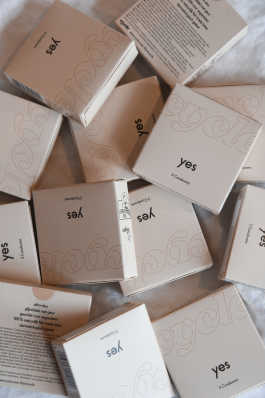Frozen shoulder, a symptom of menopause?
What is a ‘frozen shoulder’?
A frozen shoulder is a condition that affects the shoulder, making it painful and stiff as a result of a loss of mobility. Amongst others, symptoms of a frozen shoulder are dull or sharp pain in the outer shoulder area, inability to move the shoulder (limited range of mobility), pain during every kind of shoulder movement, and pain in the shoulder that disrupts your sleep. A frozen shoulder is caused by inflammation and tightening of the capsule around the shoulder joint. This condition can last months, or even years if you truly have rotten luck.
Frozen shoulder, a misunderstood condition
Frozen shoulder is a misunderstood condition that primarily affects women+. Research has shown that three-fourths of the individuals who contract frozen shoulder are women+. It primarily affects women+ between the ages of 40 and 60. Those are exactly the years during which women+ often enter menopause. If you have a history of breast cancer or diabetes or are of Asian descent, you’re also more likely to have a frozen shoulder. In parts of Asia, a frozen shoulder is also called a ‘fifties shoulder’, which is a very logical nickname!
During menopause, the ovaries produce less of the reproductive hormones progesterone and estrogen. Eventually, the production of these two hormones fully stops. On average, that happens at the age of 51. What most people don’t know is that the decrease in hormones begins much earlier, around the age of 40. That’s why complaints such as joint pain, muscle soreness, and concentration problems as a result of this transition phase can pop up before your cycle becomes irregular.
What effect does estrogen have on joints?
Estrogen plays an important role in various processes within the body. Amongst others, it’s important for the development and maintenance of cells, bone development, and muscle growth, and it also has an anti-inflammatory effect. When the levels of this hormone lower during menopause, this can lead to a plethora of complaints.
Most people who suffer from frozen shoulder are treated with physical therapy (aimed at mobilization), rest, and in some cases corticosteroïd injections. These are often long-term treatments that aren’t always successful.
Limited research has shown that hormone replacement therapy (HRT) could have an effect on frozen shoulder or the prevention of it. Up until now, HRT was primarily used for vasomotor symptoms, such as hot flashes, night sweats, and vaginal atrophy. However, research seems to indicate that it could also reduce the risk of getting a frozen shoulder. The hormone estrogen, which is administered during hormone replacement therapy, could have a positive effect in preventing such symptoms. That is of course great news, though more research is needed in order to determine the effect that reproductive hormones have on joints and the musculoskeletal system. Frozen shoulder is a complicated condition whereby many elements play a role.
Do you want to prevent a frozen shoulder? Be sure to maintain a healthy lifestyle, in which you do strength training. Do you begin to feel your joints and muscles more as you age? Know that this could be caused by menopause and that there are things you can do to combat it. Discuss this with your doctor, and make sure you’re properly informed about it. Hormone replacement therapy might be a solution for you.
Sources:
https://www.ncbi.nlm.nih.gov/books/NBK482162/

























